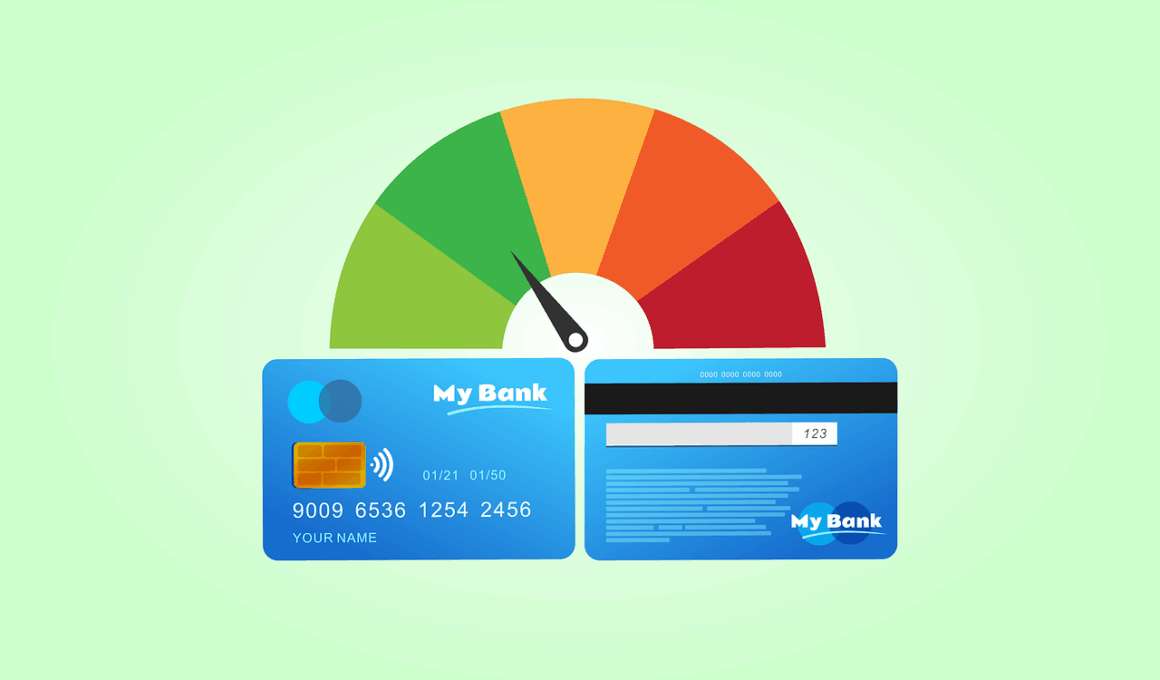Does Closing Credit Cards Affect Your Debt-to-Credit Ratio?
Understanding how your credit score is affected when you close an account is crucial. When you close a credit card, it can impact your debt-to-credit ratio significantly. This ratio, which measures your total available credit against your total outstanding debt, is a vital factor in determining your credit score. For example, if you have a credit limit of $10,000 across all your accounts and $2,000 in outstanding debt, your debt-to-credit ratio is 20%. If you close a card with a high limit, it reduces your total available credit, thus increasing this ratio. Maintaining a lower ratio is safer for your credit score. Therefore, consider how closing an account can impact not just your current ratios, but potentially your future borrowing ability as well. It can also reflect a sudden change in financial responsibility. Closing old accounts can sometimes seem beneficial but may have unforeseen drawbacks. Understanding these intricacies can help you make informed decisions about managing your credit mixed with effective strategies to avoid damaging your score inadvertently. A well-maintained credit profile is essential for financial health and future opportunities.
The most immediate effect of closing a credit card account is on your credit limit. When you close a card, you eliminate a source of credit, which can decrease your overall credit limit. This change can have a negative effect on your credit utilization ratio. Suppose you had a card with a limit of $5,000, and you close it while you have $1,000 charged on another card with a $5,000 limit. Your total credit limit drops to $5,000, while your $1,000 debt remains. Therefore, your credit utilization ratio jumps from 20% to 25%, which can be detrimental to your credit score. Lenders want to see a ratio lower than 30%; ideally lower than 10%. Closing a credit card can push you into that unfavorable territory. This is why financial experts typically recommend keeping your credit accounts open, especially your oldest accounts, even if you don’t regularly use them. Their positive history contributes significantly toward mitigating the drawbacks of closing a credit card, thereby providing beneficial longevity to your credit profile over time, making it easier to achieve favorable terms for loans in the future.
Time Factors in Closing Accounts
The duration for which credit accounts have been established plays a crucial role in your credit score as well. When an individual decides to close a credit card, not only does it eliminate current available credit but it also affects the length of credit history presented in your credit report. Each account reflects positively on how long you have responsibly managed credit. Closing older accounts can disproportionately impact your average age of accounts, which can lower your overall score, thereby making you appear as a higher risk to creditors. A short average account age can suggest to lenders a limited track record in managing credit responsibly. Moreover, the negative effects of closing an established credit card may linger long after the account is closed as this becomes part of your credit history. Therefore, if you’re contemplating closing an account, it’s vital to weigh the long-term repercussions on your credit, particularly regarding the length of your credit history and the impact this may have on securing favorable loan terms later on.
Additionally, closing a credit account can have ramifications that extend beyond just a temporary dip in your credit score. Each time you close an account, your credit report will reflect this closure for several years, potentially impacting your ability to secure new credit. Future lenders would see this as a risk factor when evaluating your application. If they notice frequent closing of accounts, they may deem you as financially irresponsible, thus raising your interest rates or denying your applications altogether. Instead of immediately closing a credit account, consider maintaining it with minimal activity instead. For example, you could make small purchases on it and pay them off in full each month. This strategy not only keeps the account active but also contributes positively to your credit utilization ratio without incurring debt. Also, closing too many accounts simultaneously can trigger a pattern that may raise red flags during your credit evaluations. Being strategic about which accounts to close and maintaining a healthy number of credit accounts can strengthen your credit profile over time without provoking undue risk for lenders.
Long-term Effects on Creditworthiness
The overall impact of closing credit accounts is not limited to immediate financial implications. A well-balanced credit portfolio showcases responsible financial behavior and induces confidence in potential lenders about your creditworthiness. Closing credit accounts can sometimes convey the converse message of instability or insecurity in managing debt. If you are contemplating your financial future, keeping unused credit accounts open may provide a buffer for your score since maintaining a healthy balance of credit types generally reflects positively on your creditworthiness. Over time, the benefits of maintaining these accounts often far outweigh the desire to close unnecessary credit lines. It’s also crucial to remember that life events, such as buying a home or a car, will necessitate stable credit scores. Therefore, think long-term about how your decisions today might impact your financial health later on when securing necessary loans. Keeping credit lines open — even under infrequent usage — ensures you present a solid financial footprint when applying for future credit that can ultimately translate to better incentives and opportunities.
Lastly, it is essential to acknowledge that while closing credit accounts does influence your debt-to-credit ratio, other factors are at play too. Your payment history accounts for roughly 35% of your credit score, meaning continued timely payments on existing debts can bolster your score significantly. Ensure you are consistently meeting all obligations on remaining accounts, as they play a paramount role in portraying credit reliability. In addition to payment history, the types and number of accounts maintained can impact your credit profile. Having a mix of revolving and installment loans can positively shape your credit score, so avoid focusing solely on credit cards. Most importantly, remember that every individual’s financial scenario is unique, and assessing the necessity of closing credit accounts should align with your broader financial goals. Seeking advice from financial advisors concerning credit management strategies can also pave the way for better decisions and outcomes regarding your long-term financial health and credit journeys, ensuring that you are maximizing your score potential by maintaining a rich credit mix.
Conclusion: Strategic Credit Management
In conclusion, closing credit accounts can have discernible impacts on your debt-to-credit ratio and overall financial health. It requires careful consideration and a strategic approach to managing your credit. Evaluating whether the benefits of closing accounts outweigh the risks to your credit score is vital in making sound financial decisions. Understanding your credit profile and recognizing how your actions affect your current standing and future borrowing opportunities is integral. Always aim for a balanced perspective by examining how to maintain low credit utilization while managing your accounts wisely. Furthermore, consider sticking to a long-term credit strategy that promotes healthy credit aging rather than impulsively limiting available credit. Make it a routine to review your credit report regularly to stay informed about your standing and recognize areas for improvement. Remember, your credit score plays a vital part in your financial life. By adopting a strategic approach to credit management, you not only secure a favorable profile now but also lay the foundation for healthy financial relationships and opportunities in the years ahead.






